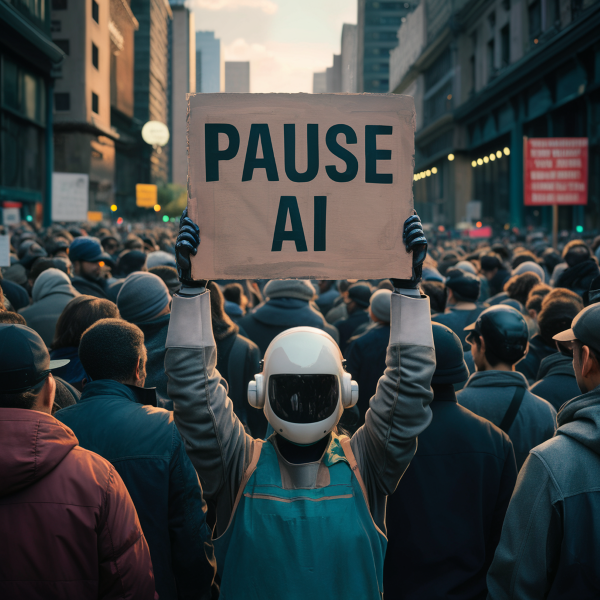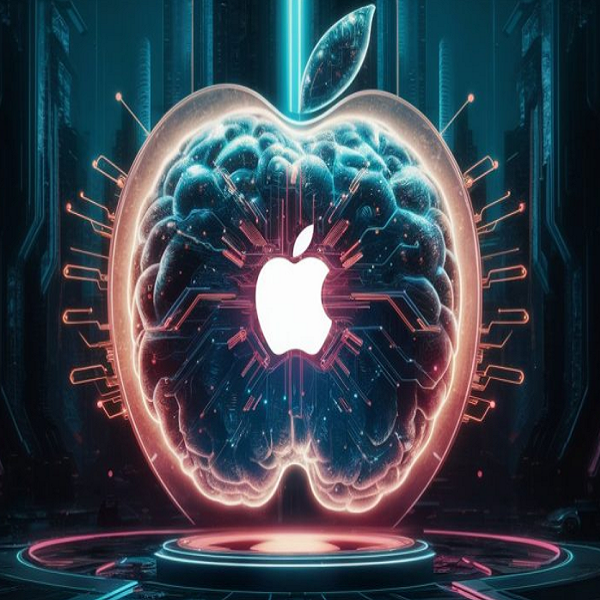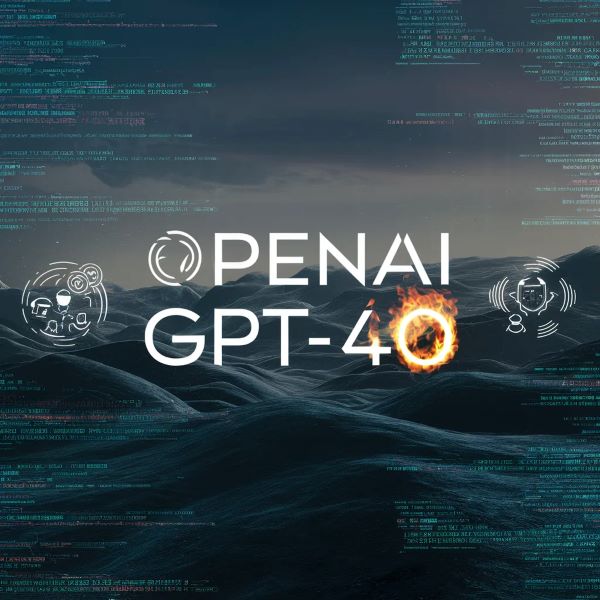On May 13th, 2024, a group of AI activists called PauseAI staged their second international protest in major cities worldwide, urging a global conversation about responsible AI development. Protests took place across twelve different countries, including the U.S., France, Iceland, Italy, Brazil, Norway, U.K., Germany, Canada, Sweden, Netherlands, and Australia. As highlighted in a tweet from PauseAI’s official X account, their message aimed to “wake up world leaders” to the potential dangers of advanced AI.
With signs raised and voices united, protestors in London made their presence known outside the U.K.’s Department of Science, Innovation and Technology. Their chants “Stop the race, it’s not safe, Pause AI” demanded a halt to the rapid development of AI, urging policymakers to establish regulations for companies creating these cutting-edge AI models.
Supporters of PauseAI argue that the current pace of AI development is too fast for society to adapt. They point to the potential for AI to disrupt labor markets, influence political systems, and even pose existential risks if AI systems were to become superintelligent and uncontrollable. “We’re not anti-technology” stated Liron Shapira, a PauseAI protestor “We love that GPT can be useful, so we’re sounding the alarm that we need to hit the pause button. It’s too soon for us to be able to handle superhuman intelligence because we need more research on how to make it safe”
They believe, much like cybersecurity professionals who prioritize threat mitigation, that safety measures and regulations need to be established before we dig deeper into the unknown territory of superintelligence.
The recent unveiling of OpenAI’s GPT-4o, a powerful AI model capable of understanding and responding across audio, video, and text, has reignited the debate surrounding Pause AI’s concerns. While GPT-4o’s impressive capabilities for real-time translation, creative writing assistance, and code comprehension, sparked excitement among AI enthusiasts, PauseAI protestors were not exactly impressed with the rapid growth of these powerful AI models. Here are some key concerns raised by PauseAI:
PauseAI argues for a pause to develop safeguards and ensure AI development remains aligned with human values and should only be allowed if companies agree for these models to undergo rigorous safety evaluation for AI to not surpass human intelligence, become uncontrollable, and pose a threat to humanity.
According to a report produced for review by the United States Department of State, Frontier AI lab executives and staff have publicly acknowledged AI-associated dangers. Nonetheless, competitive pressures continue to push them to accelerate their investments in AI capabilities at the expense of safety and security. Pause AI advocates for careful consideration of the ethical implications before further development.
A PauseAI protestor named Anthony Bailey stated that while he understands some benefits could come from new AI systems, he worries that tech companies will be incentivized to build technologies that humans could easily lose control of because these technologies also have immense profit potential. “That’s the economically valuable stuff. That’s the stuff that if people are not dissuaded that it’s dangerous, those are the kinds of models which are naturally going to be built”.
Finding the Right Balance: A Future with Responsible AI
The recent advancements and PauseAI protests highlight the importance of responsible AI development. While the potential of AI is undeniable, it’s crucial to address concerns about safety and ethics.
The answer might not be a complete halt, but a more cautious approach. This includes boosting public trust through increased transparency in research and development and facilitating open dialogues about potential risks. On a global scale, collaboration on safety standards and regulations can mitigate risks and ensure responsible advancement. Most importantly, integrating ethical frameworks into AI development will ensure these systems align with human values and benefit all.





